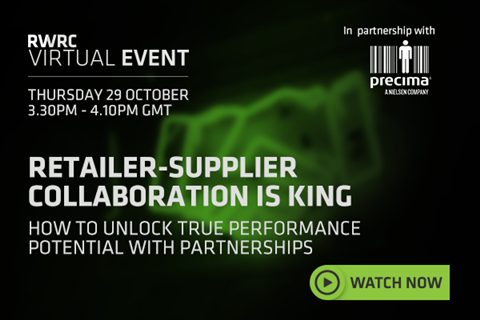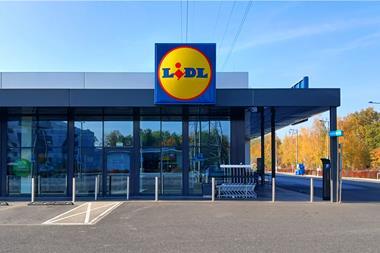PROMOTIONAL RESEARCH
Retailers and brands must boost collaboration in order to overcome data lags and ensure lightning-fast responses to market trends, Kraft Heinz Company vice president of EMEA marketing Victoria Sjardin has told Retail Week.
This view was echoed by a panel of experts speaking at Retail Week’s ‘Retailer-supplier collaboration is king: How to unlock true performance potential with partnership’ virtual event, in partnership with Precima.

Sjardin underlined that shopper insights are often derived from outdated figures. This issue, she noted, can leave shelves – physical and virtual – out of the right stock.
“There’s something not only in the accuracy of the information but the timeliness of the information if we truly do as an industry want to be able to serve our shoppers and our consumers in real-time,” she said.
Emma Heal, partner and managing director at low-alcohol brand Lucky Saint, agreed that improved collaboration could benefit both sides of the buying desk. She noted that time-poor buyers often struggle to analyse their own data, which forces them to rely on suppliers.
From a supplier perspective, Heal said, access to base-level data through grocers is “good”, though portals can be “clunky” and time-consuming.
“But other than that there’s no loyalty data, there’s no category data unless you ask for it – unless you’ve got a really good relationship,” she revealed. “The buyers sometimes don’t have access to it themselves.”
True partnerships have never been more important
Coresight Research president of research and advisory Ken Fenyo said the Covid-19 pandemic has exposed cracks in the supply chain and forced retailers and suppliers to rethink their approach to meeting customer demand.
“We need more than ever to have collaboration between retailers and brands around the data that will allow them to meet this unexpected demand, as well as continue to grow the overall business,” he said. “Figuring out ways together to meet mutual goals I think has a lot of power.”
However, suppliers and retailers forging ahead with a shared vision should not expect to simply start sharing data, and then “magically everything’s going to be fantastic,” he warned. To reap the rewards of collaboration, a cultural shift is required.
Collaborative challenges: Tech, trust, and decision making
Fenyo added that recent Precima-Coresight research unearthed a lack of trust and communication between retailers and brands.
He highlighted that a “natural tension” exists within these partnerships as buyers attempt to negotiate the best possible deal, and brands bring their own strategies to the table, which do not always align with those of retailers.
Building trust is not the only challenge retailers and suppliers face on the road to a genuine, mutually beneficial partnership, however.
“We need more than ever to have collaboration between retailers and brands around the data that will allow them to meet unexpected demand, as well as continue to grow the overall business”
Ken Fenyo, Coresight Research
Precima director for EMEA partnership development Martin Black explained that while building a common data platform and achieving data transparency can comprise the foundations of a successful collaboration “that alone is not enough.”
“Where we have seen real successes around collaboration [are] simple KPIs clearly embedded into decision-making processes, where ultimately both retailer and supplier are really clear on what’s going to drive the decision,” he said.
Then, of course, there’s the technical challenge of building a “seamless, intuitive and easy-to-use” portal, said Black, as well as the issue of developing a clear framework to embed data insights into decision-making processes.
A cultural shift
According to Black, as these partnerships move towards more customer-centric ways of working, they should “think about trust on an individual relationship basis” and strive to “learn an entirely new language”. Furthermore, they must ensure the collaboration generates “enough ROI for everybody”.
Looking to the future, Sjardin listed three benefits retailers and suppliers should look to get from their partnerships: supply chain efficiency; improved foresight; and increased personalisation.
Meanwhile, Heal said she would hope such collaborations can generate “better pricing solutions that suit different circumstances and sharing models that have evolved to ensure suppliers can gain maximum value from the data”.
The good news is that retailer-supplier collaboration is already improving, according to Fenyo, particularly as omnichannel – and the data available around it – snowballs.

To watch the full virtual event on-demand, register here. You will discover:
- What the retailer-supplier relationships of the future will look like
- The key role of data transparency in improving customer-centricity
- Why a shared vision is required to execute a shared strategy
- How retailer-supplier collaboration will enable lightspeed reactions to market trends
- Precima and Coresight Research on the path forward




























